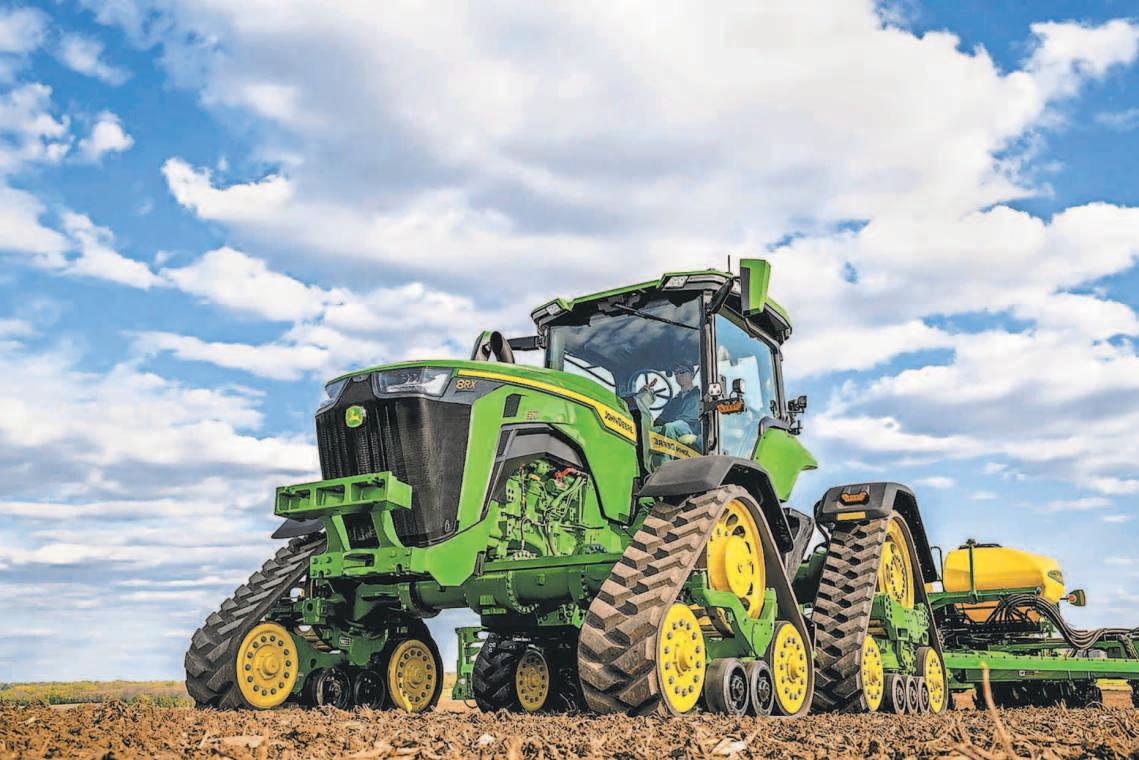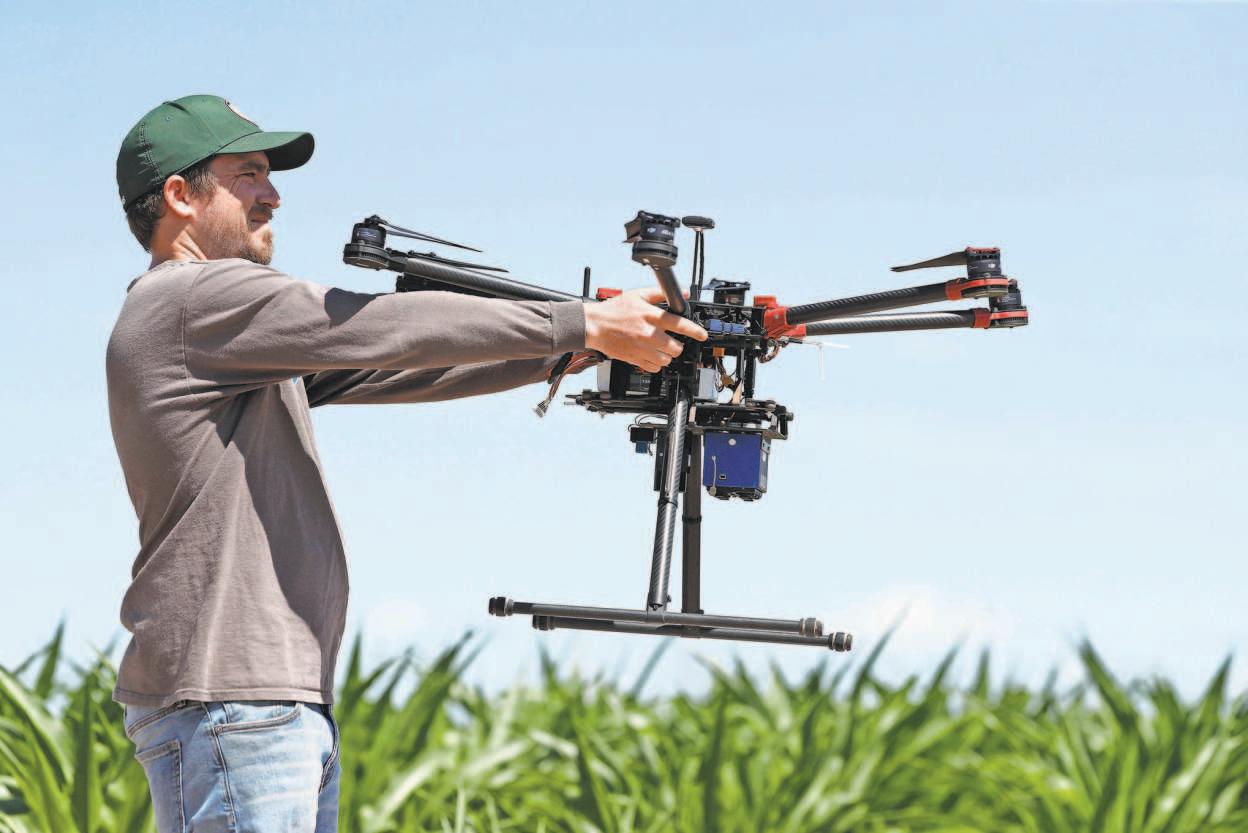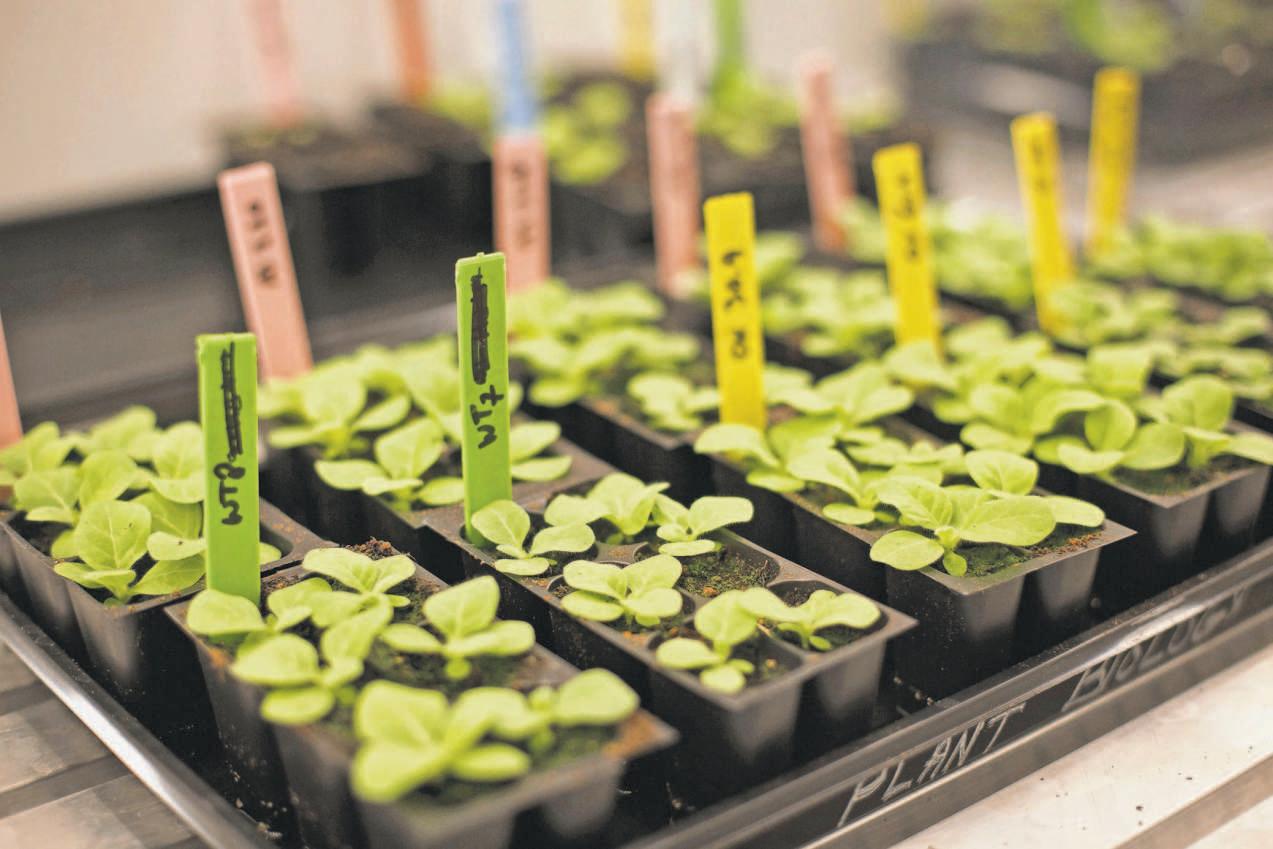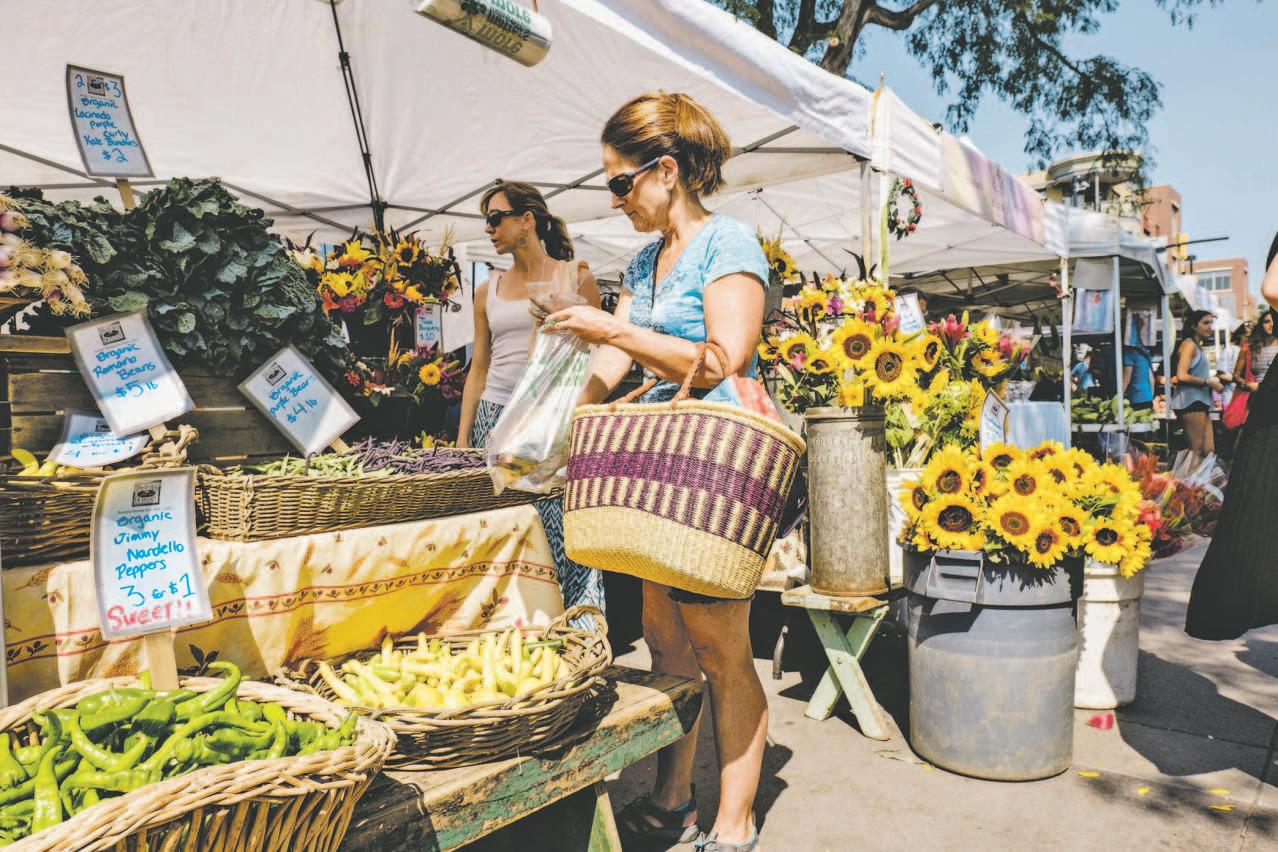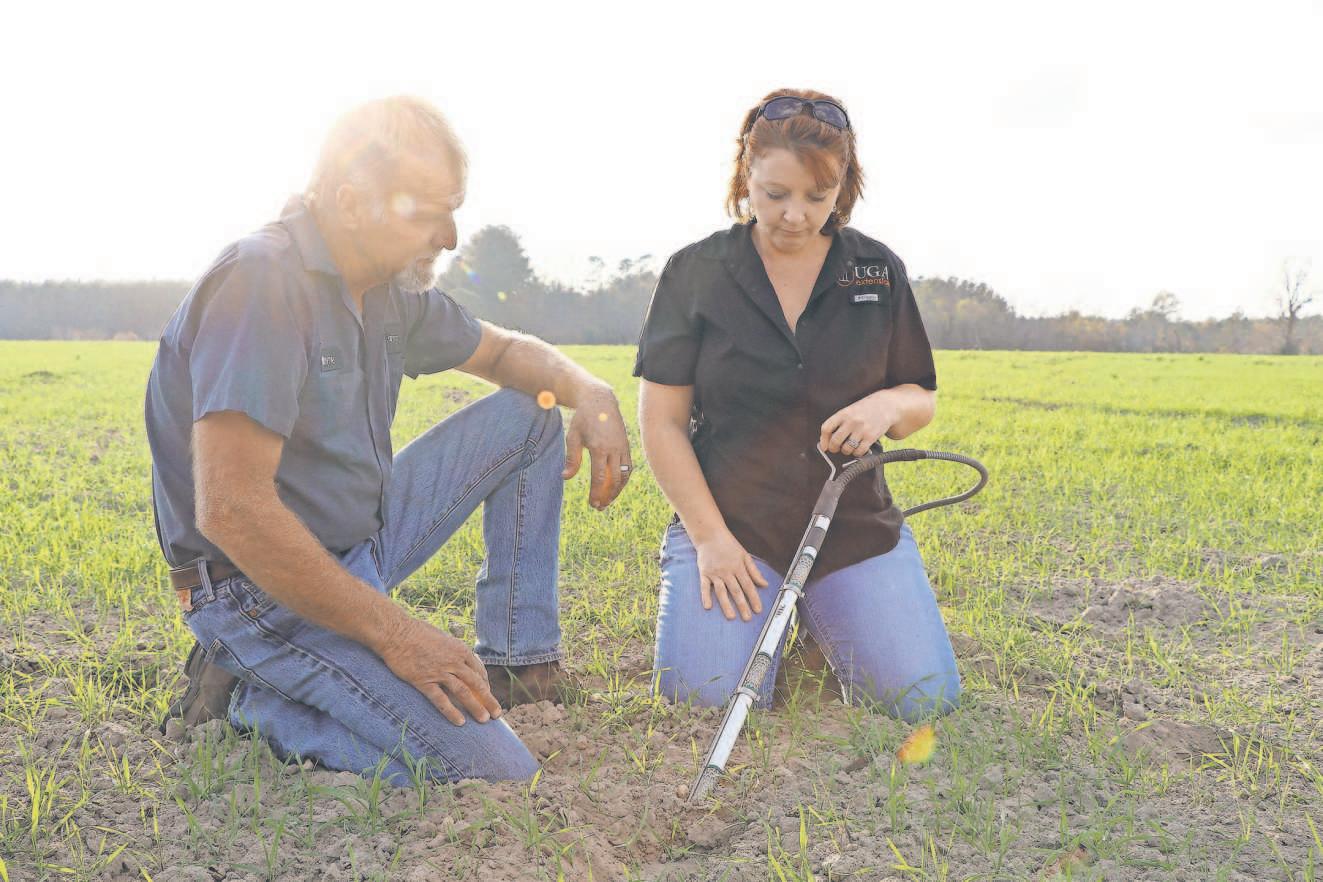
7 minute read
TAKING ROOT
EDUCATION
A Place to Grow
Advertisement
Incubators offer low-risk option for beginning farmers to take root
By Jodi Helmer
JENNY HAUF WAS NO stranger to getting her hands dirty. Before starting Muddy River Herbals in Canton, Mass., in 2015, she had worked on farms in Virginia, Oregon, Wisconsin and Massachusetts, sowing seeds, pulling weeds and harvesting fresh herbs. Although she was gaining valuable hands-on experience, Hauf knew that working as a farmhand was not the same as operating her own farm.
“It takes so much skill to grow anything well and manage the land well, and I had a strong foundation in those things, but I had no idea how to run a business,” she said. Hauf applied for the Incubator Farm Training Program offered through the New Entry Sustainable Farming Project at Tufts University and spent the next two years participating in educational programming, growing medicinal herbs on leased land and gathering advice on how to start and run a successful farm.
CULTIVATING OPPORTUNITIES
Incubator farms are designed to bring together beginning farmers and mentors for hands-on training, education and technical assistance. The U.S. is home to more than 200 incubator farms, according to the National Incubator Farm Training Initiative . Through the intensive programs, beginning farmers receive temporary and affordable access to small parcels of land and farm infrastructure including tractors, tools and walk-in coolers. The setup is designed to help farmers generate enough momentum (and revenue) to go out on their own. The latest data shows that 42 percent of beginning farmers who participated in incubator programs are now principal farm operators, and 37 percent of incubator graduates are working on farms.
“People have become a lot more cognizant of where their food comes from and ... (that there are) different models for (the) raising of our food and taking care of the land and creating community … those

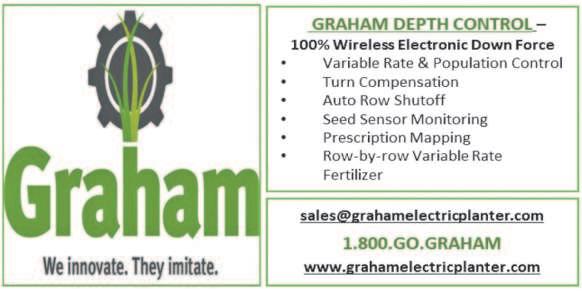



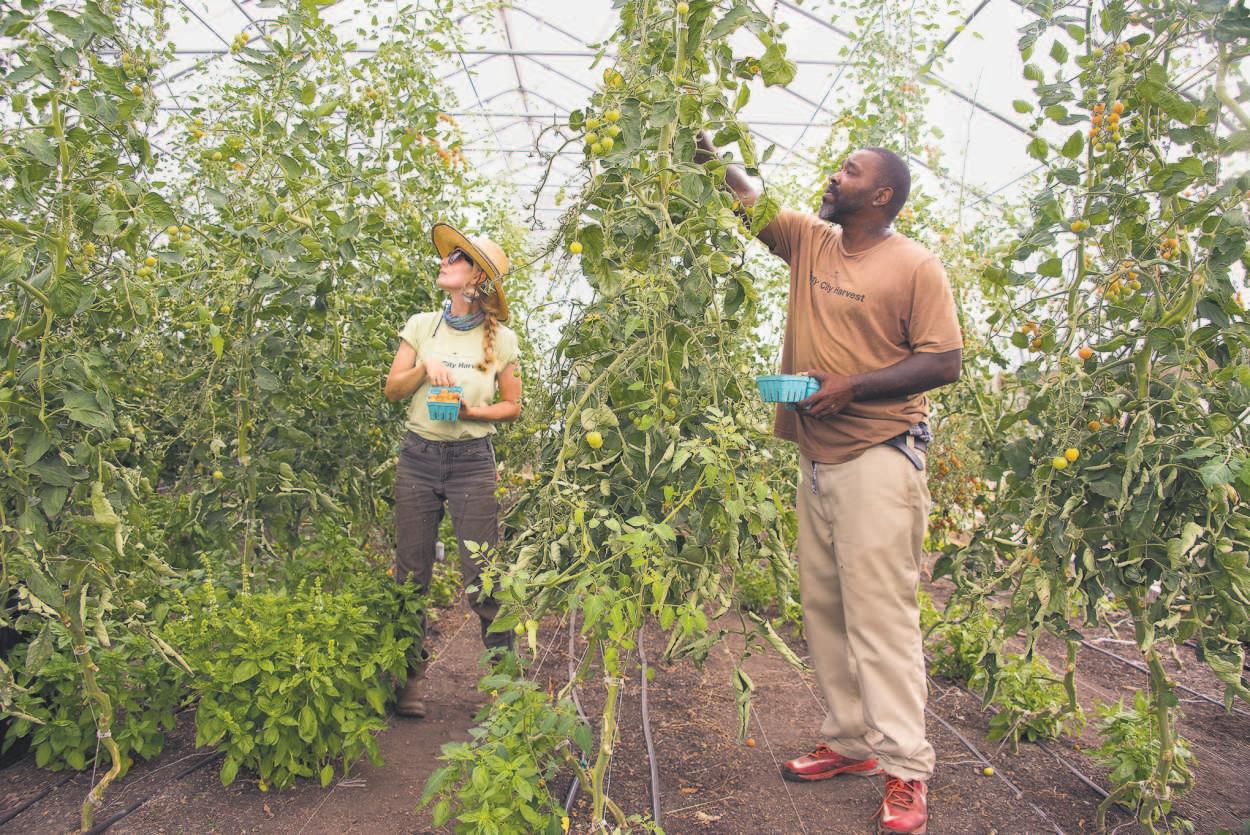
EDUCATION
CHICAGO BOTANIC GARDEN
Beginning farmers who participate in the Windy City Harvest Farm Incubator at Chicago Botanic Garden have access to land and infrastructure to cultivate crops.
42%
trends have supported the opportunities for beginning farmers who want to get into this business to serve that need,” explained Jennifer Hashley, director of Tufts’ New Entry Sustainable Farming Project. “(Farm incubators) can support beginning farmers and help them figure out how to leverage their skills and knowledge.”
To be accepted into a farm incubator, beginning farmers must submit detailed applications that might include a business plan, proof of previous farming experience and a willingness to commit at least 20 hours per week to launching their new farming operations.
The hosting organizations include universities, nonprofit organizations and working farms. The U.S. Department of Agriculture’s National Institute of Food and Agriculture has provided funding to support farm incubators through its Beginning Farmer and Rancher Development Program .
Hilltop Urban Farm in Pittsburgh launched a farmer incubation program as part of a 2019 pilot project. Interested applicants were required to attend a working session to learn more about the program, participate in a tour of the 5.75-acre farm, undergo an interview and submit a business plan. Once accepted, participants are granted affordable leases for quarter-acre parcels of land for up to three years. “Farming is hard work and requires major investments, and even experienced farmers can struggle to make it work,” said John Bixler, executive director for Hilltop Urban Farm . “We wanted to provide a low-risk opportunity for beginning farmers to get an idea of whether farming was really right for them.”
Five farmers signed on to be part of Hilltop’s incubator program in its first year. Two vegetable producers dropped out due to issues with the soil, but a beekeeper, compost producer and cut-flower grower completed the season and plan to return in the spring.
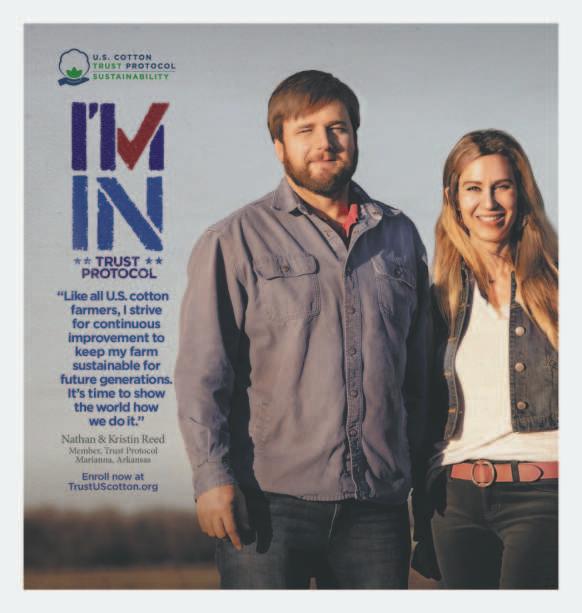

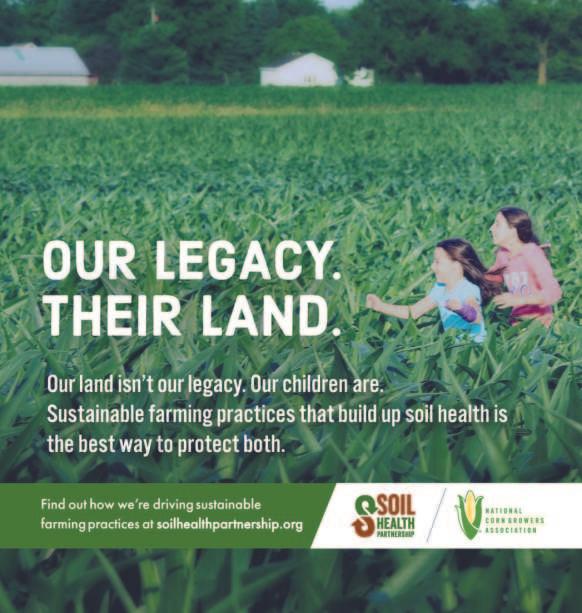


THE SEEDS OF SUCCESS
The three-year-plus land leases associated with many incubator programs are intentional. “The USDA Farm Service Agency requires three years of production history in order to be eligible for their traditional Farm Service Agency loan program,” Hashley explained. “We felt like if people could get into the incubator and start their business and keep good records for three years, then they would be eligible for these loans that would potentially allow them to buy their own land (when their time in the incubator ended).”
But access to land in major urban areas is often limited. Recognizing the challenge, the Chicago Botanic Garden launched the Windy City Harvest Farm Incubator program in 2013 . Beginning farmers work quarter-acre plots of land using intensive production methods to grow high-value annual vegetable and cut flower crops. “Illinois is a big farm state … but, in Chicago, there were very few opportunities for urban residents to get involved with agriculture in a meaningful capacity,” said Kelly Larsen, operations director of Windy City Harvest . “We looked at (the incubator) as a solution to that gap.”
Larsen said 10 farmers who graduated from the incubator are still farming, and 70 percent of their farm businesses remain in Chicago.
Farm incubators can provide important resources to beginning farmers, but Hashley noted that the process is still daunting to many. She said that thousands of participants have taken crop production and farm business planning courses through Tufts’ New Entry Incubator Farm Training Program, but only 116 have enrolled in the incubator program, and the number of beginning farmers who have completed the program is even lower.
“Some of (the farmers) don’t even make it all three years; (but) we look at that as a success because they didn’t go into great debt to buy land and tractors only to figure out it’s not right for them,” Hashley said. “I think a lot of what the incubator offers is that stage space to try out the business.” Hauf credits the incubator for her success with Muddy River Herbals. She cultivates echinacea, mint, calendula, ashwagandha, thyme and other medicinal herbs, selling her bulk herbs, teas and tinctures through farmers markets, community-supported agriculture subscriptions and online.
“Without New Entry, I would have made more mistakes and struggled a lot more to navigate the challenges,” Hauf said. “The incubator gave me such a foundation to get the business going. I would not be where I am without it.”
EDUCATION
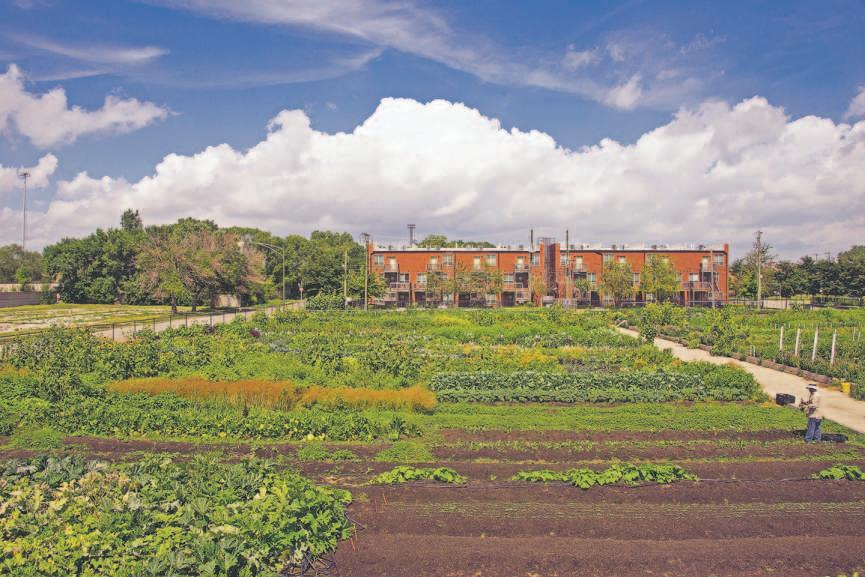
CHICAGO BOTANIC GARDEN The Chicago Botanic Garden operates the Windy City Harvest Farm Incubator on a 2.5-acre plot of land that was once the site of a public housing development.
FIND YOUR FARM
Incubator farms offer a range of services, infrastructure and support to fit a variety of business goals. Most host information nights and tours to give prospective farmers a chance to meet the staff, see the farm and ask questions. Here are just a few of the many incubator programs available nationwide:
Hilltop Urban Farmer Incubator Program, Pittsburgh Length of program: Three years Prerequisites: Completion of a farm business planning class Cost: $600 per year plus water
New Entry Incubator Farm Training Program, Tufts University, Beverly, Mass. Length of program: Three years Cost: $315 per quarter-acre plot plus additional fees, including technical assistance ($350), cooler use ($180) and greenhouse access ($330)
Windy City Harvest Farm Incubator, Chicago Length of program: Two years (with the option to enroll in an advanced incubator for an additional five years) Prerequisites: Graduation from a nine-month program through City Colleges of Chicago and completion of a Chicago Small Business Association business course Cost: $1,000 per quarter-acre plot
Headwaters Incubator Program, Portland, Ore. Length of program: Five years Prerequisites: Completion of a farm business plan Cost: $600 per acre/per year plus $500 annual participation fee and additional fees for infrastructure, equipment and professional services
Carolina Farm Stewardship Association’s Lomax Farm, Concord, N.C. Length of program: Three to five years Prerequisites: At least 80 hours of production experience Cost: $1,925 per year
Nettle Valley Farm Incubator Program, Spring Grove, Minn. Length of program: One to three years Prerequisites: Must have LLC Cost: At least 20 hours of labor per month plus additional fees for large equipment rentals


